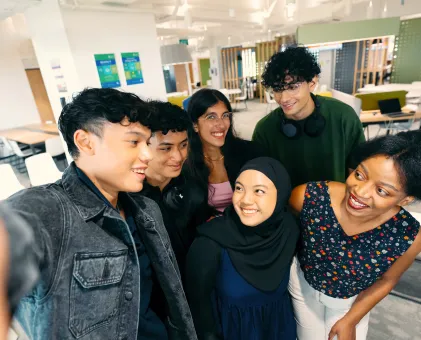3 key takeaways from the NCUK partner conference

Earlier this week, we had the pleasure of joining NCUK’s annual partner conference, which this year was held in Bradford.
Our participation at the conference came after we became NCUK’s official peer recruitment partner recently - something you can read about elsewhere on this blog. We had a terrific couple of days at the event - thanks so much to everyone who said hi and for letting our co-founder Nik speak too.
As we like to do after a conference, we wanted to take stock and pass on some key learnings. This time, our trio of takeaways all come from one session.
The session in question was run by Mark Garratt, Director of External Relations at the University of Bradford and featuring a panel of international students. It was effectively an ‘in conversation with international students’ session, and three things really stood out for us…
They value peer recruitment
The students on the panel were quick to point out how much they valued the perspectives of current students, and how useful those perspectives were in helping them make a decision. However, those same students said that it was very difficult to access those current students to get that perspective - one student had to search social media to find them.
This shows the importance of not only having student ambassadors helping with your peer recruitment efforts, but also making them as easily-accessible as possible.
(Spoiler, we can help you do exactly that!)
Parents
The students also said that the influence of their parents on their decision-making process was significant, and often unavoidable.
That’s really important to bear in mind - are you creating content for parents as well as prospective students?
There isn’t one definitive in their decision-making process
The panel agreed that their decision to study overseas had often been made when they were very young (e.g. 10 years old). As such, it is not possible to be reductive and say one 'thing' makes an international student make their decision.
Rather, it's often something that has developed and been influenced over a long period.
Want help with your peer recruitment strategy? Get in touch.


